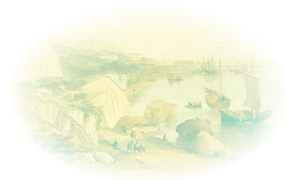| |
Objectives:
The establishment of Tung Wah Hospital in 1870 signified the emergence of local power in Hong Kong. The colonial government entrusted the important task of solving public health problems in the Chinese community to Chinese elite, allowing them to deal with thorny social issues on behalf of the government as well as serving as a bridge of communication between civil society and the government. Tung Wah Hospital, set up under the Chinese Hospital Incorporation Ordinance, made public how it managed the organisation and distributed the donations received, setting a precedent as the first Chinese charity that adopted Western legal systems in governance. On the other hand, Tung Wah Hospital in its early days insisted on using Chinese medicine to treat illness, espousing the Chinese traditional concept of doing good deeds to accumulate merits and serving the Chinese community. Since the end of the 19th century, Tung Wah Hospital’s operation mode of combining Chinese and Western cultures has continuously influenced the development of Chinese charities throughout the world through charitable services. Studying Tung Wah Hospital is indispensable to understanding Hong Kong and the evolution of Chinese community charities.
Using the health care services rendered to expectant mothers, infants, young children and the elderly as the starting point, this symposium, titled Charity and Health Care: Inspiration from the experience of Tung Wah Group of Hospitals in Chinese Communities , explores the characteristics of health care provided to pregnant women, infants, young children and old people by Chinese charities in different eras and their evolution process since the end of the 19th century. With the passing of time, society gradually accepted Western culture. During the process of raising infants and nurturing the development of young children, what choices did Chinese charitable medical institutions make with respect to traditional values? With an increasingly ageing population resulting in an ever-rising demand for services, should Chinese charitable medical institutions still adhere to the traditional concept of showing care to the elderly till the end of their lives. How did Chinese charitable medical institutions respond to the challenges posed by Western treatment methods, the modernisation of medical equipment and an increased division of labour among medical personnel? How did traditional medical services transform in the course of interaction between Chinese and Western cultures. How did the general public change from fighting for basic services to a desire for humane care?
The transformation of Chinese charitable medical institutions in Hong Kong reflects mutual adjustment between the government and civil society. Did the implementation of Western health care systems in Chinese communities in different regions have similar experiences to those of Hong Kong? Did the governments in different cities relied on Chinese leaders to take the lead when new measures had to be adopted? How did the Chinese communities outside Hong Kong strive for recognition in society? By comparing the development experiences of Chinese charitable medical institutions in different regions, this symposium seeks to review the advantages and disadvantages in respect of the above questions and find a new direction for the current and future development of health care services in Chinese communities.
Tung Wah Hospital has been in existence for 143 years by 2013. As the oldest charity, the challenges encountered by the hospital in different eras are not only an account of the views of Hong Kong’s Chinese community towards traditional Chinese medicine and the process of accepting Western medicine, but also provide valuable learning opportunities for the Chinese communities all over the world that have to make choices in the face of new cultures and new challenges.
|
| |
Organisers:
Tung Wah Group of Hospitals
Leung Po Chuen Research Centre for Hong Kong History and Humanities, The Chinese University of Hong Kong
Research Institute for Humanities, The Chinese University of Hong Kong
Co-organisers:
Department of History, The Chinese University of Hong Kong
College of Public Health, Taiwan University
|
.jpg)






 Disclaimer
Privacy Policy
Disclaimer
Privacy Policy
.jpg)






 Disclaimer
Privacy Policy
Disclaimer
Privacy Policy